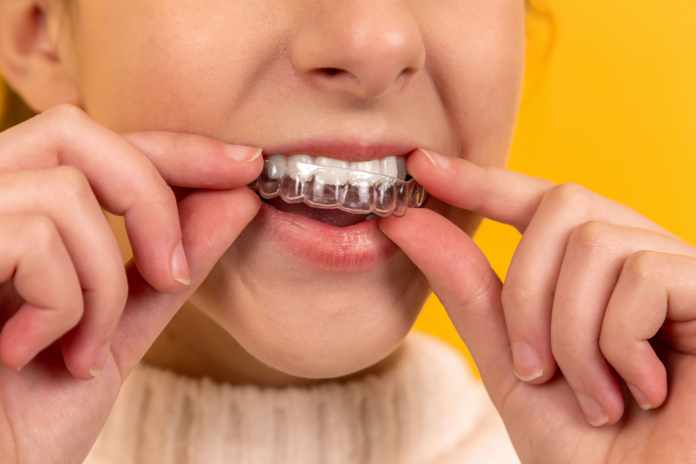Table of Contents
Intro
There are several reasons to practice solid oral hygiene, namely to protect your teeth. Americans are averaging a lifespan of 78 years old. That’s a lot of years to go through with a smile you’re not completely happy with. If you don’t protect your teeth, it leads to tooth loss, plaque buildup, and bad breath. You probably know that it’s important to keep up with dental visits. The following are five oral hygiene tips to protect your teeth in between dentist appointments.
1. Brush Your Teeth
It’s common sense to brush your teeth, yet not all Americans do it twice a day daily.
There are several products on the market that make brushing your teeth easy and convenient.
You can opt for the plain, manual toothbrush, or you can go with the BlueTooth-enabled, rechargeable, and varying replacement head toothbrush. Powered toothbrushes coupled with a whitening head help knock off build-up on your teeth for a clean feeling every time.
You’ll also find several toothpaste varieties at your local grocery or drugstore. Whitening, enamel protecting, and gum rejuvenating are some varieties. Sensitive, fresh breath, and charcoal are others.
The point is that you can customize your tooth brushing routine. Pick your favorite toothpaste flavor and toothbrush, and you’re good to go.
If you’re on the run, need to brush at work, or travel frequently, there are also travel options including the type that don’t require water.
2. Floss After Brushing Your Teeth
After you brush your teeth, it’s important to floss at least once a day. Floss like toothbrushes and toothpaste are available in several varieties. Pick the one that suits your preferences.
Floss comes in convenient packaging that fits in your medicine cabinet, desk drawer, and purse.
It’s estimated that flossing removes 40% of the stuff that hides in between your teeth. Food particles, bacteria, and plaque don’t stand a chance against the minty rope.
If you want to take things up a notch, there are also water flossers. These are great because the pressured water pushes things in between your teeth out. Just stand over the sink and let the flosser do the work. To make a flosser more effective, squirt a few drops of hydrogen peroxide into the water.
3. Use Fluoride Products
Dental lasers became available in the early 1990s. It’s no secret that technology helped this field evolve. Technology also helped some dental products become mainstream, such as fluoride.
Products with fluoride in them help protect your teeth. They strengthen your tooth’s enamel. The result is a reversal of visible tooth aging. Enamel wears down every time you eat acidic foods; fluoride repairs some of the loss and damage.
Fluoride is available in toothpaste and mouthwash.
Mouthwash is a great addition to your oral hygiene routine. When you opt for fluoride mouthwash, it’s the last step in your routine. Rinse for at least 30 seconds. Once you spit it out, there’s no drinking or eating for half an hour.
Some fluoride mouthwash formulas include anticavity, enamel strengthening, and whitening features too, which are bonuses.
4. Mind What You Eat
When you eat a healthy diet, it benefits your entire body. If you mind what you eat, you’ll protect your teeth. You’ll also protect your weight, immune system, and overall health.
Foods that protect your teeth include dairy products, fiber-rich fruits, and raw vegetables. Apples, celery, and carrots improve your breath and help remove plaque from your teeth.
Dairy products contain lots of calcium and little sugar. Sugar eats your teeth. When you need to rehydrate, it’s best to stick with water. Soda, coffee, and fruit juices contain sugar that eats your teeth and staining components. Water, on the other hand, is pure and clear.
5. Visit Your Dentist Twice a Year
It sounds cliche but it’s also true, to protect your teeth visit your dentist twice a year. Your dentist and dental assistant remove all the build-up brushing, flossing, and mouth washing doesn’t.
During the visit, you’ll find out the state of your teeth. To protect your teeth, your dentist looks for cavities before they turn into root canals, among other dental issues.
Conclusion
If you practice good oral hygiene, you’re protecting your teeth against aging, decay, and loss. There are some conditions out of your control that impact your teeth, such as Bruxism and teeth grinding. If you suffer from either, JS Dental Lab offers more information.



















